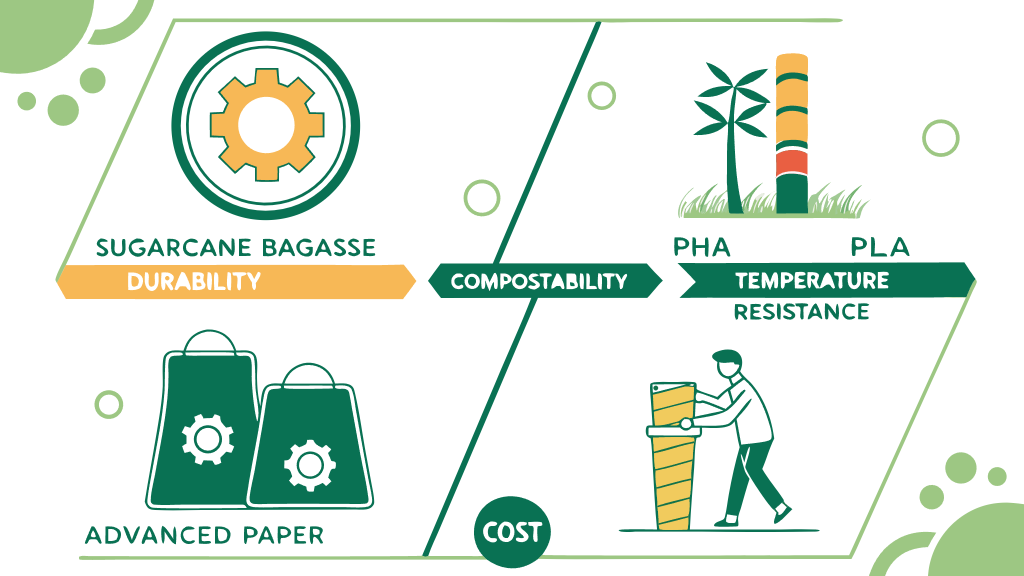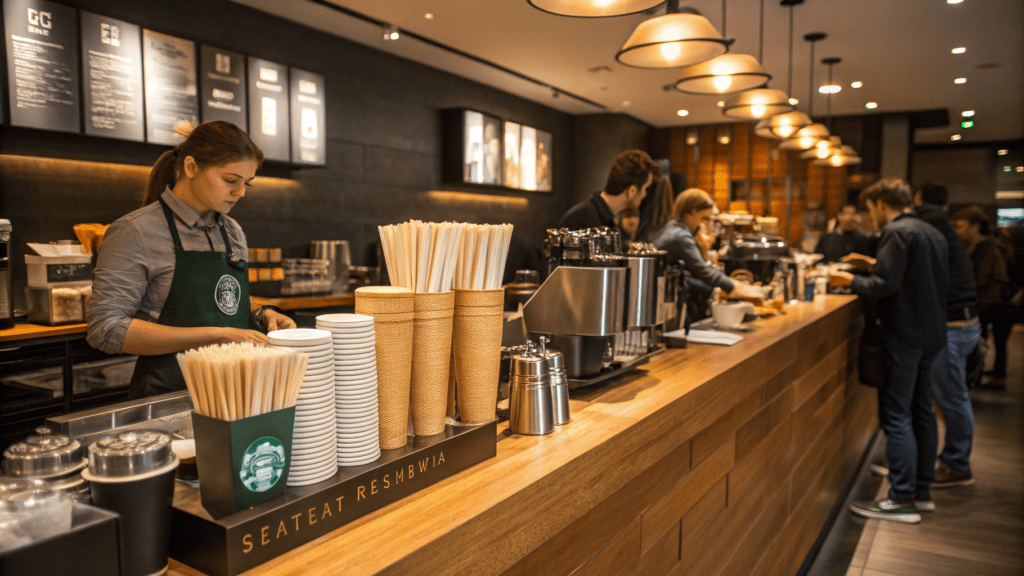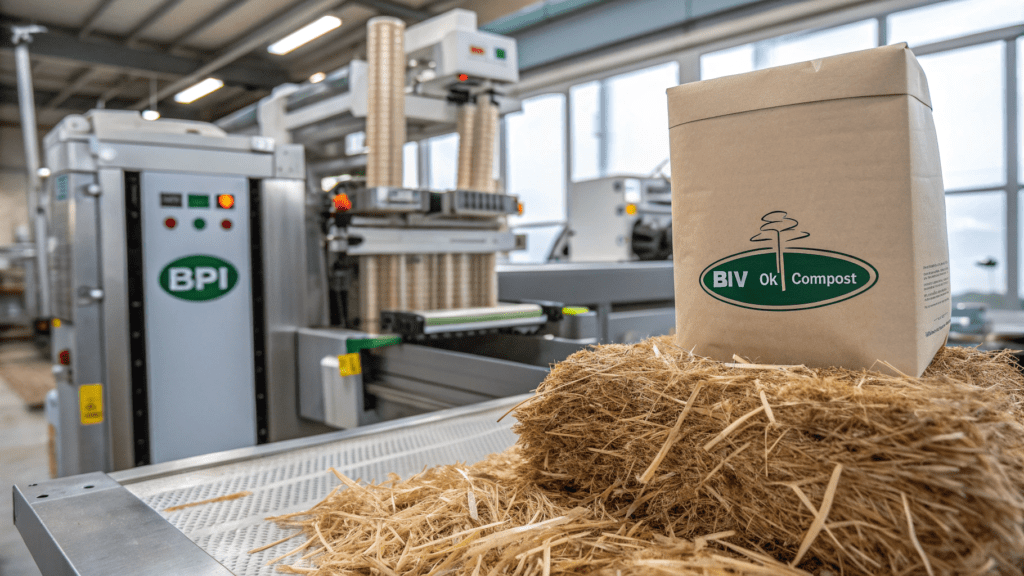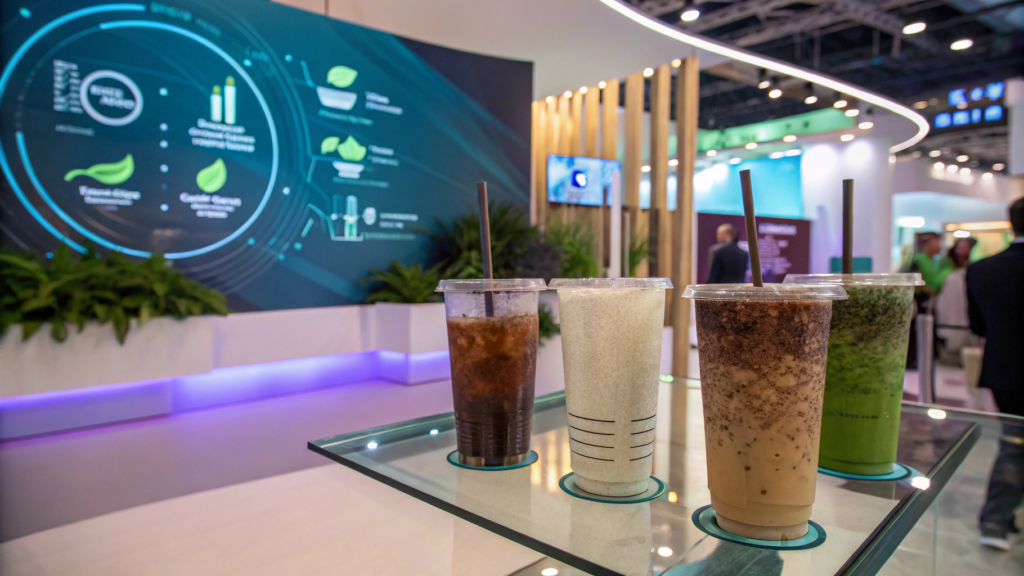The omnipresent plastic straw has become a symbol of a looming global crisis. Businesses today face unprecedented scrutiny as single-use plastics continue to choke our oceans, fill landfills, and fragment into insidious microplastics that infiltrate our food chains. This isn’t just an environmental issue; it’s a critical business risk. Regulatory bodies across the globe, from the European Union with its sweeping Single-Use Plastics Directive to numerous U.S. states and cities like Seattle, are implementing or tightening bans on these materials. Failure to adapt isn’t merely an ethical misstep; it translates directly into potential fines, costly compliance hurdles, and significant reputational damage.
Adding to this pressure, consumer expectations have fundamentally shifted. A new generation of buyers, particularly Millennials and Gen Z, are not just aware of environmental issues—they actively demand that the brands they support align with their values. Research consistently shows a strong preference for businesses that demonstrate genuine commitment to sustainability, rather than superficial “greenwashing.” This translates directly into purchasing decisions, customer loyalty, and ultimately, market share. To thrive in this evolving landscape, businesses must move beyond mere compliance and embrace truly impactful sustainable practices that resonate with a conscientious customer base. Discover how leading businesses are redefining their environmental footprint with sustainable obal solutions. For a deeper understanding of the global plastic pollution crisis, refer to insights from the United Nations Environment Programme.

Understanding Compostable Straws: Beyond “Biodegradable”
In this rapidly changing environment, a simple switch can unlock profound advantages. Moving beyond mere compliance, adopting compostable straws represents a strategic pivot towards a more sustainable and resilient business model. But what exactly defines a truly compostable straw? Unlike generic “biodegradable” labels, which can imply decomposition over an undefined and often extended period, “compostable” denotes products specifically engineered to break down into non-toxic, natural components—water, carbon dioxide, and biomass—within a defined timeframe, typically weeks or months. For many common compostable options, this process requires the controlled conditions found in industrial composting facilities. To ensure authenticity and meet rigorous environmental standards, businesses should look for key certifications such as BPI Certified Compostable in North America or TÜV OK Compost and DIN CERTCO in Europe, which verify a product’s ability to fully decompose without leaving harmful residues. Explore our range of certified compostable products and find the perfect fit for your operations. For detailed information on compostability standards and certifications, visit the Biodegradable Products Institute (BPI).
Innovation in Materials: The Future of Sustainable Sipping
The innovation in compostable straw materials is remarkable, offering diverse solutions to meet varying business needs. Leading the charge are materials likeSugarcane Bagasse, a fibrous byproduct of sugarcane juice extraction, which produces durable, non-toxic, and often PLA-free straws suitable for both hot and cold beverages.PHA (Polyhydroxyalkanoates), derived from plant-based oils like canola, stands out as a marine-degradable bioplastic, offering exceptional durability and resistance to sogginess, comparable to traditional plastic, even at high temperatures (up to 212°F/100°C).PLA (kyselina polylaktická), made from fermented plant sugars like cornstarch, mimics the look and feel of conventional plastic but requires specific industrial composting facilities for complete breakdown. Finally,Advanced Paper Straws, crafted from wood pulp, have evolved significantly. Modern versions feature improved water-resistant, food-safe coatings that enhance durability and prevent sogginess, making them a highly reliable and widely available option.
This shift isn’t just about material science; it’s a market transformation. The global eco-friendly straws market is projected to reach nearly $25.1 billion by 2035, demonstrating a robust compound annual growth rate (CAGR) of 7.3%. This remarkable expansion is fueled by heightened environmental awareness, evolving consumer preferences, and an increasing number of corporate sustainability commitments. By embracing compostable straws, businesses position themselves to capture a growing segment of the market and secure a competitive edge in an industry rapidly moving towards a greener future.

Strategic Advantages: Beyond Environmental Compliance
Adopting compostable straws offers more than just environmental compliance; it’s a strategic asset for strengthening your brand and optimizing operations. Leveraging compostable straws profoundly enhances your brand’s public image by resonating with the values of modern consumers, fostering increased customer satisfaction, and building lasting trust. This tangible commitment to environmental responsibility sets your business apart from competitors, allowing you to craft a powerful and positive brand narrative that encourages loyalty and attracts new patrons. Critically, integrating compostable straws aligns seamlessly with broader Corporate Social Responsibility (CSR) and Environmental, Social, and Governance (ESG) strategies, signaling a deep commitment to sustainable practices that can attract eco-conscious investors and partners. Learn more about integrating comprehensiveESG strategies for B2Bto boost your market position. For more on the role of ESG in corporate strategy, consult reports from organizations likePwC’s ESG Hub.
Proactive adoption also future-proofs your operations within an increasingly complex regulatory landscape. By switching to certified compostable straws now, your business pre-empts and complies with evolving single-use plastic bans and regulations, particularly prevalent across the US and Europe. This foresight helps you avoid potential fines, circumvent legal costs, and mitigate supply chain disruptions that can arise from non-compliance. Demonstrating environmental leadership through the use of certified compostable products underscores your commitment to a circular economy, enhancing your reputation as a responsible and forward-thinking enterprise.

Choosing the Right Solution: Performance and Cost
Choosing the right compostable straw involves understanding the unique performance attributes of each material, vital for smart procurement decisions:
- Sugarcane Bagasse Straws: Derived from a fibrous byproduct of sugarcane juice extraction, these straws are often certified for both home and industrial composting. They are highly durable in both hot and cold beverages and are typically PLA-free, offering a sturdy and reliable user experience.
- PHA (Polyhydroxyalkanoates) Straws: Produced from plant-based oils like canola, PHA straws are remarkable for their ability to biodegrade in both industrial composting facilities and natural marine environments. They offer durability and resistance to sogginess that closely mirrors traditional plastic, performing exceptionally well even at high temperatures (up to 212°F/100°C).
- Brčka PLA (kyselina polymléčná): Formulated from fermented plant sugars (e.g., cornstarch), PLA straws beautifully mimic the look and feel of conventional plastic. However, it’s crucial to note that they require specific industrial composting facilities for complete and timely decomposition.
- Advanced Paper Straws: Crafted from sustainably sourced wood pulp, these straws are highly compostable. Significant technological advancements have led to improved water-resistant, food-safe coatings that enhance their durability and prevent premature sogginess, making them a more reliable and widely accepted alternative.
Modern compostable options are engineered to overcome past concerns about durability and performance, ensuring a consistently positive customer experience comparable to, if not exceeding, that of traditional plastic. While the initial investment in compostable straws might be slightly higher than their plastic counterparts, the long-term cost implications are often favorable. Businesses can realize potential savings on waste management fees due to reduced landfill waste volume and avoid the significant financial penalties and reputational damage associated with non-compliance.

The Future is Now: Continuous Innovation
The future of compostable straw technology is already here, marked by continuous innovation. Breakthroughs include the development of PFAS-free formulations, addressing concerns about “forever chemicals,” and the exciting emergence of novel plant-based alternatives such as seaweed, coffee grounds, and even straws derived from bacterial cellulose. These cutting-edge materials promise to deliver plastic-like performance with uncompromising compostability and environmental integrity. Furthermore, optimized production methods are steadily reducing manufacturing costs and improving the scalability of compostable straw solutions, making them increasingly accessible for businesses of all sizes.
Ready to Catalyze Your Green Transition?
Ready to catalyze your green transition and make a lasting impact? Implementing a compostable straw strategy is simpler than you might think. Begin by training your staff on proper disposal procedures and ensure clear signage is provided for customers, guiding them to appropriate composting bins. Always prioritize sourcing certified compostable products to guarantee authenticity and fulfill your environmental claims. Beyond internal operations, leverage your sustainability certifications and eco-labels as powerful marketing tools to amplify your brand appeal and attract a discerning customer base.
Embracing compostable straws isn’t just about adhering to new norms; it’s about seizing a distinct competitive advantage. From an enhanced brand reputation to robust regulatory resilience, this strategic move positions your business as a leader in sustainable practices within your industry. Don’t just adapt—lead the change.
Ready to Lead the Change?
- • Schedule a complimentary sustainability consultation with our experts to assess your current waste streams and explore the best compostable straw solutions for your business needs.
- • Request a sample kit of our cutting-edge compostable straws to experience their quality and performance firsthand.
- • Download our comprehensive B2B Guide to Sustainable Foodservice Packaging for in-depth insights and implementation strategies.






